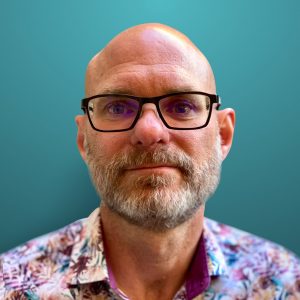
Small Cell Forum – Three questions with… Picocom
Picocom VP Marketing, Oliver Davies, was recently interviewed by the Small Cell Forum for its ‘Three Questions with…’ series. He talks about the impact of Covid on collaboration within the industry, and the growing demand for multi-operator small cells. Read the interview below:
 SCF: Your company is a member of Small Cell Forum, so what is your view on the future of small cells as 5G comes in?
SCF: Your company is a member of Small Cell Forum, so what is your view on the future of small cells as 5G comes in?
OD: Public small cells will need to support both 4G and 5G. 4G-only phones will be around for many years, and many networks will be non-standalone for some time to come. In addition, in the UK and many parts of Europe, 2G will be a requirement to support emergency calls and handsets that do not support VoLTE.
In the 3G days, all small cell, and small cell networks, were self-managing. That’s what enabled them to happen. You plugged them in, and they connected to the network and self-provisioned. We will see this carry over into 5G private networks.
There will be some fully integrated small cells, but to meet the price and power requirements, we mainly see either Functional Split 6 or 7.2 small cells. Generally, Split 7 where networks are dense and Split 6 where networks are sparse, or the operator does not own or have easy access to fibre.
SCF: How do you see the industry changing at the moment and what can the Forum do to address/improve/or enhance these changes?
OD: There is a lot of momentum in Open RAN. On the one hand, things are becoming more open; however, on the other hand, things are becoming more fragmented.
The worldwide coronavirus pandemic hasn’t helped the situation by contributing to this with geographical isolation. When people get together, a lot of stuff tends to get done. People would travel and spend several days at a plenary and have three meetings in three continents over the year. These days, with everything being virtual, it makes it very difficult to get people around the globe together and aligned. Although there has been progress, it has tended to be driven by companies in certain regions.
So, we feel it’s vital that the Small Cell Forum works towards making extra efforts to reach across national borders and be inclusive whilst remaining agnostic.
SCF: In relation to your business, what are some the key technologies /or polices that are driving the industry (or parts of the industry) forward at the moment, and how can we progress further and faster?
OD: There’s much activity in the neutral host and private networks aspects of 5G Open RAN. We’re seeing many more people doing concrete things about mutual hosting, and some countries are even mandating shared networks.
With this, small cells will become more capable of multi-band and multi-operator support. Today, you need four separate small cells for in-building small cell coverage to support four different mobile networks. With the advent of shared and neutral host networks, demand for multi-operator small cells is developing.
New generations of silicon are enabling this at a price point of just a fraction more than a single operator small cell. This requirement has driven the specification of our products, including our ORANIC distributed unit board, which recently won an SCF award.
###
Image Source – SCF 2021.
Interview Source – SCF 2021: smallcellforum.org/three-questions-with/three-questions-with-picocom/

